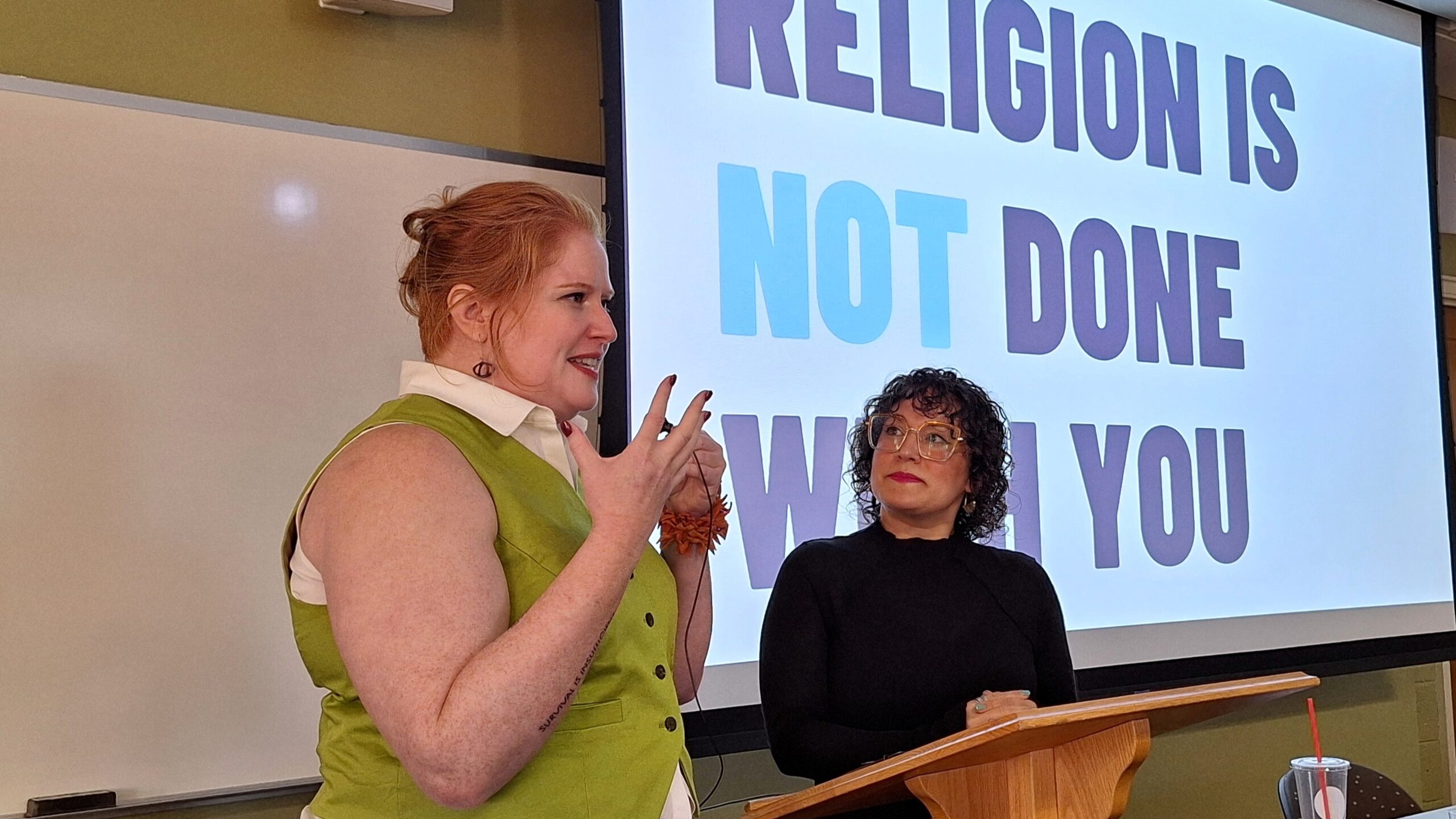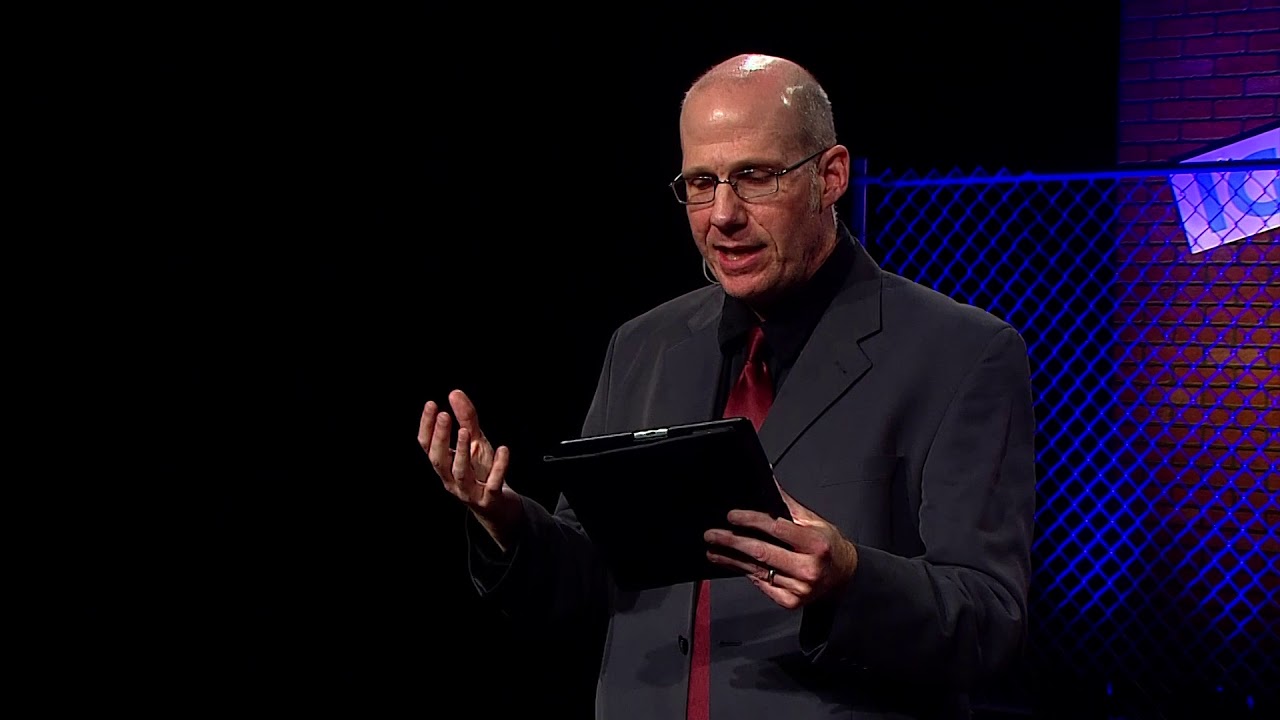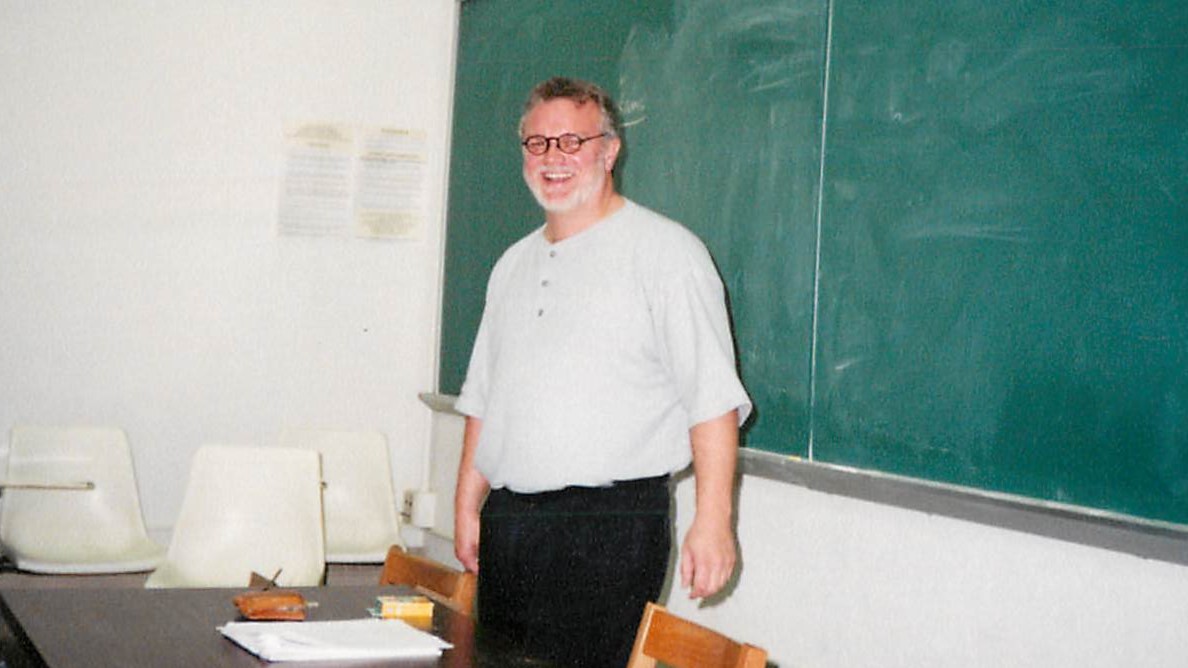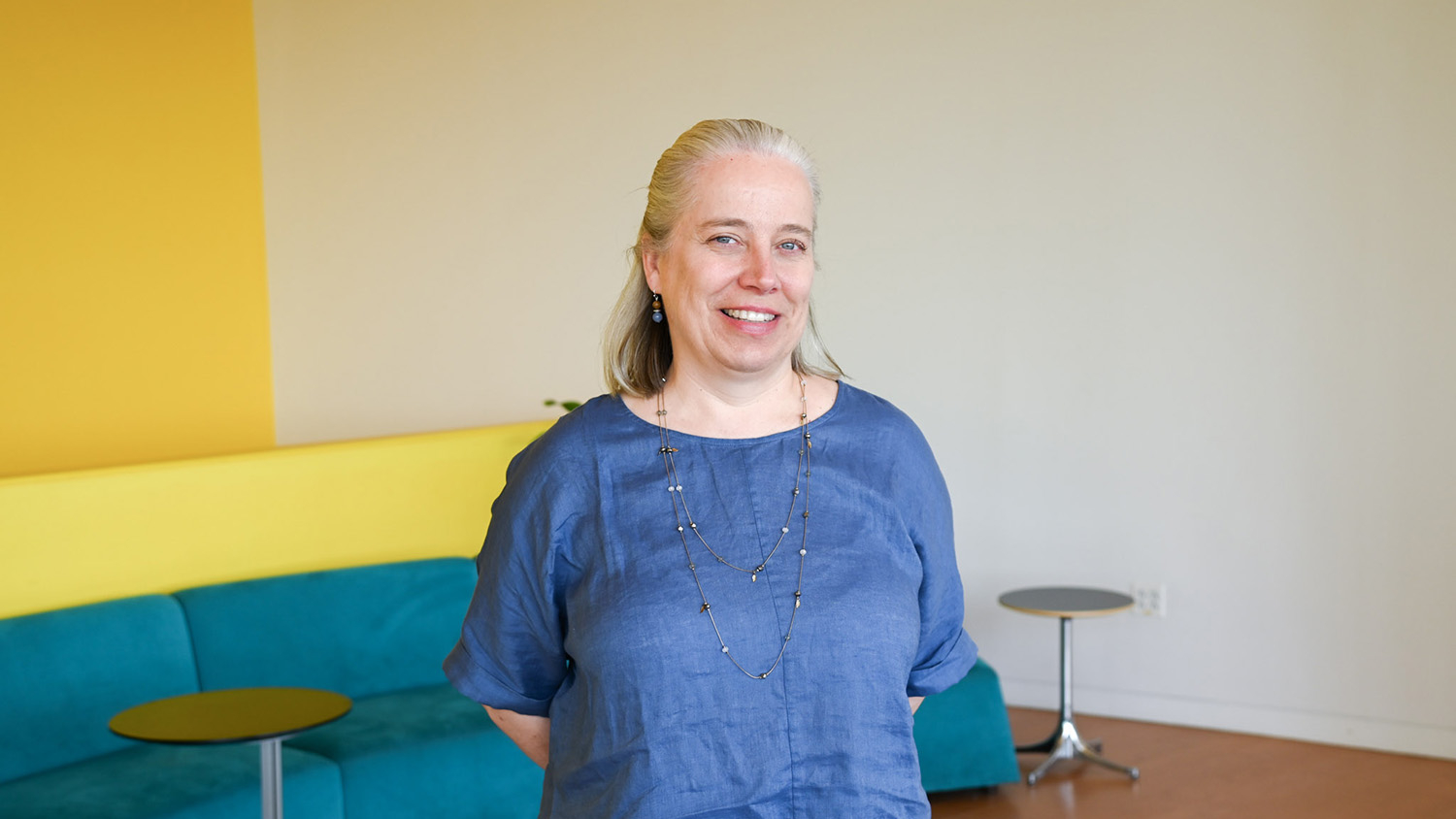Podcasters Deliver Impact of Religion Lecture

The following story was composed primarily by Kathleen Foody, Assistant Professor of Religious Studies.
NC State hosted its eighth annual Impact of Religion Lecture on Monday, February 24. The speakers were Megan Goodwin and Ilyse Morgenstein Fuerst. Goodwin and Morgenstein Fuerst are the authors of Religion Is Not Done with You Yet (Beacon Press, 2024) and host the Wilbur Award-winning podcast Keeping It 101: A Killjoy’s Introduction to Religion. Their topic was “Flight Risk: Surveillance, Security, and the Study of Religion.”
The Department of Philosophy and Religious Studies has hosted the Impact of Religion Lecture since 2016. The event aims to reflect on the significance of religion—and Religious Studies—in our contemporary world. Past speakers have addressed minority religions in the United States, artificial intelligence, white supremacy, religious freedom, and a host of other issues.
Both Goodwin andMorgenstein Fuerst hold Ph.D.s in Religious Studies from UNC Chapel Hill. Dr. Goodwin’s work centers on race, gender/sexuality, politics, and minority religions in the United States. She is the author of Abusing Religion: Literary Persecution, Sex Scandals, and American Minority Religions (Rutgers, 2020). She is currently a senior editor for Religion Dispatches, an award-winning publication for analysis of religion and American culture and politics.
Morgenstein Fuerst is associate professor of religion and director of the Humanities Center at the University of Vermont. Her research centers on Islam and Muslims in South Asia; histories of imperialism; and theories of religion, race, and language. Her books include Indian Muslim Minorities and the 1857 Religion (Bloomsbury, 2017) and the co-edited volume Words of Experience: Translating Islam with Carl W. Ernst (Equinox, 2020). Her forthcoming work, Imperial Pandemics, will focus on global Islamophobia and antisemitism and is supported by a 2022-2023 Fulbright US Scholar Award.
In their presentation, the speakers explored the airport as a site where religion and race interact to shape, constrain, surveil and police bodies. They suggested that passport privilege, counterterrorism protocols, and random screenings help us to see the racialization of religion in our everyday world. They posited that the September 2001 terrorist attacks were a key moment in contemporary understandings of religion, race, and threat for both the United States and the globe. Significantly, they argued that the “religio-racial” policies and practices that began in the wake of 9/11 continue to frame and constrain the movements of both religious and nonreligious bodies in our world today.
During the subsequent Q&A, students reflected on the transformations the speakers had identified in airport surveillance—transformations that began before most of them were born and had previously gone unnoticed by many of them. They also asked why school shootings or the COVID pandemic—more frequent and more deadly incidents respectively—have not remade the world in the same way as the 9/11 attacks. Following the talk, three senior Religious Studies majors joined the speakers for dinner and had a lively time discussing their own research, courses, and future plans. Interested readers can learn more about the speakers’ work at their joint and individual websites: www.keepingit101.com; www.megan-goodwin.com; www.profirmf.com.
- Categories:


